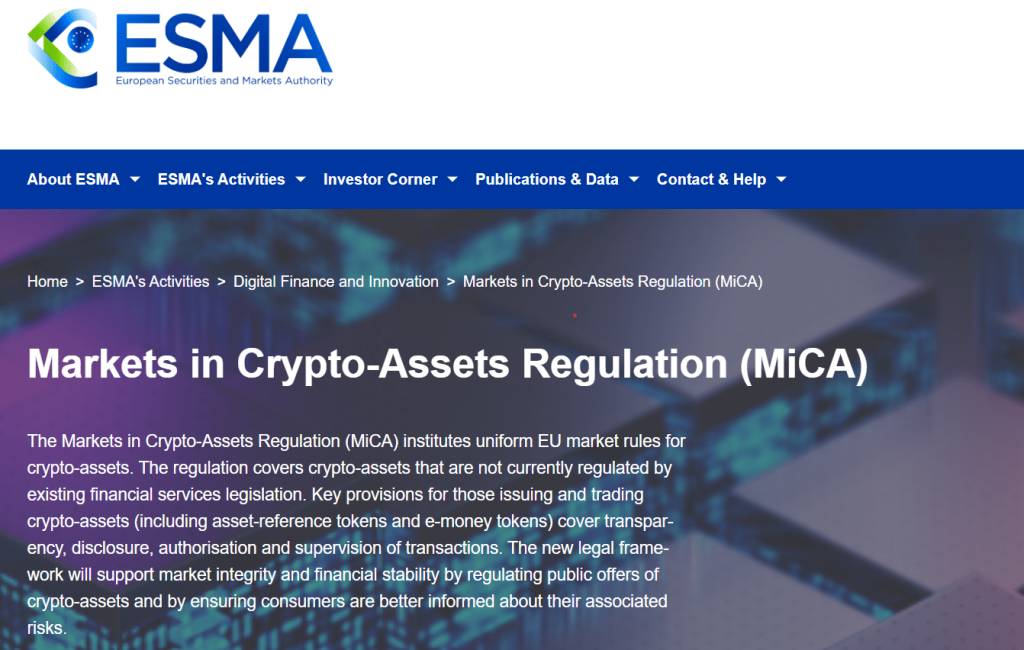
Crypto regulations are not only complex but they can vary significantly depending on the country. This is an evolving landscape, so many jurisdictions are yet to install crypto-specific legislation.
In this guide, we clear the mist by exploring key crypto regulations from around the world. We cover regulations related to crypto ownership, tax reporting, anti-money laundering, and much more.
What Are Crypto Regulations?
Crypto regulations are the rules and laws that governments create to manage how cryptocurrencies are used, traded, and owned. They cover important areas like taxes, preventing money laundering, and protecting investors. Since crypto is still new and evolving, different countries have different rules. But the goal is the same: to make sure crypto activities are safe and transparent for everyone involved.
In many places, crypto regulations are still being developed. Some countries have strict rules, treating cryptocurrencies like traditional financial assets. This means things like paying taxes on crypto gains and following strict identification checks when using exchanges. Other countries are more relaxed, allowing innovation while slowly introducing rules to prevent issues like fraud and market manipulation.
It can be challenging to create effective regulations since crpyto operates outside traditional financial systems. This means that laws constantly change as governments try to keep up with the fast-moving crypto industry. If you’re involved in crypto, it’s important to stay updated on the latest regulations in your country to ensure you’re following the rules.
Types of Crypto Regulations
There are different types of regulations that play a big role in keeping the crypto space in line. These regulations ensure that crypto activities are conducted safely, legally, and fairly. Here’s a look at the main types of crypto regulations that you need to know.
- Regulations on Trading and Exchanges: These regulations govern how cryptocurrencies can be traded and the operations of exchanges. They include rules on registration, licensing, customer verification (KYC), and compliance with anti-money laundering (AML) laws.
- Tax Regulations: This type covers how cryptocurrency transactions are taxed. It includes capital gains taxes on profits from trading or selling crypto, and income taxes on earnings from activities like mining or staking.
- Anti-Money Laundering (AML) and Counter-Terrorism Financing (CTF) Regulations: These regulations aim to prevent using cryptocurrencies for illegal activities. They require exchanges and other service providers to monitor transactions, verify customers, and report suspicious activities.
- Consumer Protection Regulations: These rules are designed to protect investors from fraud and other unethical practices. They include requirements for risk disclosures, the handling of customer funds, and transparency in crypto projects.
- Data Privacy and Security Regulations: These regulations ensure the protection of personal data and the security of crypto assets. They require platforms to implement strong security measures and comply with data privacy laws like GDPR.
- Cross-Border Regulations: Since crypto operates globally, these regulations govern the movement of crypto assets across borders. They include compliance with international AML/CTF standards and regulations for international transactions.
Who Regulates Crypto?
While crypto is a borderless and global asset class, regulation is determined on a country-by-country basis. What’s more, some countries have several different regulators responsible for overseeing the industry. For instance, in the US, the SEC governs crypto-related securities. This includes Bitcoin ETFs, Coinbase stock, and any crypto projects it deems to be selling unregistered securities.
The IRS, however, regulates crypto taxation laws. And then there’s the CFTC, which regulates crypto-related commodity markets, such as Bitcoin futures. In addition, FinCEN oversees crypto money laundering and terrorist financing regulations. This multi-agency approach to crypto is found in other major economies, including the UK and the European Union.

All that being said, very few countries have installed crypto-specific legislation. In most cases, existing legislation is applied to crypto assets. This is especially the case when it comes to taxation and financial crime laws. This can make it challenging for stakeholders, as some regulations are open to interpretation.
Crypto Regulations by Jurisdiction
Let’s take a closer look at how different countries regulate cryptocurrencies. Each one has its own approach, depending on its unique legal and economic state. It’s important to understand how these regulations work so you can have insights into the global crypto environment and how it affects users and businesses worldwide.
United States
The U.S. doesn’t have any specific legislation dedicated exclusively to crypto assets. That said, the U.S. has taken a multi-agency approach to govern the industry. In terms of taxation, the IRS views cryptocurrencies as property. This means that crypto disposals – including sales and swaps, can trigger capital gains tax. The IRS treats mining, staking, and other earning products as income.
To safeguard the industry from money laundering and terrorist financing threats, FinCEN enforces existing financial crime regulations. This means gatekeepers must comply with the Bank Secrecy Act. In simple terms, this means conducting customer due diligence checks on transactions involving fiat and reporting purchases and sales above the $10,000 threshold.
The SEC is responsible for governing crypto-related securities. It doesn’t view Bitcoin or Ethereum as securities, and therefore has no jurisdiction over these projects. However, the SEC does govern Bitcoin ETFs. It also regulates crypto-related stocks like Coinbase. That said, the SEC has filed charges against many crypto and NFT projects for selling unregistered securities – including Ripple.
The UK
The UK government first announced its intentions to regulate the crypto industry in 2013. Progress has been very slow. Nonetheless, HMRC is responsible for crypto-related taxes. Similar to most jurisdictions, realized crypto profits are subject to capital gains tax. What’s more, the UK’s NCA is responsible for upholding anti-money laundering regulations, which include crypto assets.
In terms of the crypto trading markets, this is overseen by the FCA. Any crypto businesses serving UK clients must be registered with the FCA unless they have an e-money license. In 2022, the FCA banned retail clients from trading crypto derivatives, such as Bitcoin futures, options, and CFDs.
In late 2023, the FCA introduced its travel rule on crypto transactions. This requires crypto exchanges to collect additional information on incoming and outgoing wallet transfers. This includes the identity of the transacting parties. There have also been discussions on regulating crypto assets as gambling products. However, the proposal was rejected by UK lawmakers.
Canada
In general, Canada is considered a crypto-friendly nation. It treats crypto assets as commodities, meaning disposals are subject to capital gains taxes. FINTRAC oversees anti-money laundering and terrorist financing compliance. This means exchanges must implement adequate KYC checks on their clients.
The CSA – which regulates the securities markets, has previously stated that some crypto assets could be securities. In particular, this includes initial coin offerings (ICOs) that haven’t sought approval from the CSA. Crucially, however, some Canadian provinces have their own regulations on crypto assets. This means Canadians must be aware of provincial and federal guidelines.
European Union
The European Union aims for a harmonized approach to crypto regulations across all member states. For example, the most recent Anti-Money Laundering Directives specifically cover crypto assets. This requires stakeholders to report suspicious activities to their national financial intelligence unit.
It also requires exchanges to identify their customers and report transactions above the €10,000 threshold. The European Union is also developing the Markets in Crypto-Assets Regulation (MiCA). This will offer comprehensive guidance on crypto service providers, including exchanges, wallets, and decentralized finance platforms.

It will also cover crypto-asset issuers, such as ICOs. ESMA – which regulates the European financial markets, limits retail clients to leverage of 1:2 when trading crypto derivatives. Taxation, however, is determined on a member-state level. While countries like Portugal offer favorable tax treatment on crypto profits, this isn’t the case throughout the continent.
Japan
Japan was one of the first countries to recognize crypto assets as a payment currency. Many retailers within the country accept Bitcoin and some of the best altcoins. Japan’s FSA oversees the crypto trading markets. It dictates standards and rules for crypto exchanges, including consumer protections, security, and ethical practices.
Exchanges and other gatekeepers must comply with existing regulations on money laundering controls. While Japan is considered a crypto-friendly country, it has an aggressive stance on crypto taxes. Capital gains are treated as miscellaneous income, meaning they can be taxed at up to 55%. What’s more, businesses holding crypto are taxed at 30%, even if the assets haven’t been disposed of.
China
China is the complete opposite of crypto-friendly. It has some of the most draconian regulations across most areas of the industry. For a start, China banned ICOs in 2017 after a wave of successful campaigns. It ordered several high-profile projects to return funds to ICO investors. After the ICO ban, the Chinese government then moved on to domestic crypto exchanges.
This forced some of the best crypto exchanges to move overseas, including OKX and Huobi. And then in 2021, China turned its sights to mining operations. Back then, China dominated the Bitcoin mining industry. However, the government has since cracked down, forcing local operations to close.
China has since banned all crypto trading activities, including buying, trading, and selling. It’s also illegal to use crypto as a medium of exchange. All that said, the bans have proven challenging to enforce. Crypto ownership is still significant throughout China.
India
India previously took an anti-crypto stance. In 2018, the central bank instructed financial institutions to prohibit crypto-related transactions. This made it challenging for Indians to buy cryptocurrencies within the country. However, the central bank’s regulatory stance was overturned in 2020.
This means that Indian financial institutions can now facilitate crypto transactions for account holders. That said, crypto is taxed heavily in India. There’s a flat 30% capital gains tax on all crypto disposals – irrespective of the individual’s income. What’s more, there’s a 1% withholding tax on the full value of the disposal, which is withheld by crypto exchanges.
Australia
Australia has embraced crypto assets for many years. For a start, Australia views cryptocurrencies as legal property. This means that crypto assets are taxed the same as other investments. Crypto taxes are overseen by the ATO. What’s more, AUSTRAC is responsible for enforcing anti-money laundering regulations on crypto stakeholders.
This includes reporting large crypto transactions and suspicious activities and conducting adequate customer due diligence procedures. However, there have been some recent regulatory changes, largely aimed at protecting retail clients. For example, major high-street banks – including Commonwealth Bank and Westpac, Block certain crypto transactions.
This includes deposits made with ‘high-risk’ exchanges. Some Australian banks hold crypto-related transactions for 24 hours or more, allowing time to investigate the transfer. ASIC – which regulates the Australian financial markets, regulates securities brokers with crypto exposure. Domestic exchanges must also be registered with ASIC.
The Interactive Gambling Amendment (Credit and Other Measures) Bill 2023
Crypto assets were included in Australia’s latest regulatory development. The Interactive Gambling Amendment (Credit and Other Measures) Bill 2023 prohibits online gambling sites from accepting crypto payments. The rules will come into force in June 2024.
Benefits of Regulating Crypto
Globally, crypto regulation is still in its infancy. Let’s explore some of the benefits of regulating this high-growth industry.
Consumer Protections
Regulations must be installed to protect consumers from unethical crypto practices. The FTX bankruptcy, for example, resulted in billions of dollars worth of customer funds being lost.
In addition, scams related to ICOs are still prevalent. Crucially, sensible regulation can protect consumers without hindering the industry. Exchanges, for example, could be required to hold minimum reserves.
Legitimize the Industry
Creating a regulatory framework for cryptocurrencies will further legitimize the industry. Those who are yet to enter this market would have greater confidence in buying and selling crypto assets.

In their current form, cryptocurrencies are still treated as unregulated financial products. This means that traditional securities protections don’t extend to crypto projects. Ultimately, regulation will encourage a new wave of capital inflows – which benefits the industry as a whole.
Financial Crime Prevention
Financial crime is a major issue in the crypto industry. Especially when it comes to money laundering and terrorist financing. Suitable regulations will help financial intelligence units keep the industry safe.
This means following existing guidelines on customer due diligence, suspicious activity reporting, and politically exposed persons.
Promote Innovation
Crypto regulation can help the industry grow organically. It will also encourage innovation from startups and established companies alike. With a clear regulatory framework, innovators will take the crypto markets to the next level.
Market Stability
Many commentators argue that Bitcoin prices are heavily manipulated. This not only reduces market confidence but creates speculative and volatile trading conditions. A strong regulatory framework – similar to securities laws in the US, can create long-term market stability.
Risks of Regulating Cryptocurrency Market
While regulation can take the crypto industry to new heights, there are also some drawbacks to consider.
- Cost Implications: Regulatory red tape can be costly for crypto stakeholders. Specialist compliance teams are needed to ensure regulations are followed. This can negatively impact new market entrances.
- Privacy Concerns: The best cryptocurrencies to buy offer a level of anonymity when sending, storing, and receiving funds. Too much regulation can lead to privacy concerns. For instance, the UK now requires domestic exchanges to collect information from clients that make wallet transfers.
- Market Barriers: The crypto markets are borderless and inclusive. However, increased regulations can create barriers to entry, which could hinder growth.
- Enforcement: On a consumer level, enforcing crypto regulations can be challenging. This is especially the case when using decentralized products, such as exchanges and self-custody wallets.
Conclusion
Crypto regulations are an evolving space, with many countries implementing new guidelines and laws to protect consumers. Governments are particularly interested in preventing crypto scams, malpractice, and access to high-risk products.
What’s more, there is increased harmony when it comes to anti-money laundering and taxation rules. Future regulation can only help the industry grow further. Regulation must be sensible, ensuring that risks are reduced without hindering innovation.















1 Comment